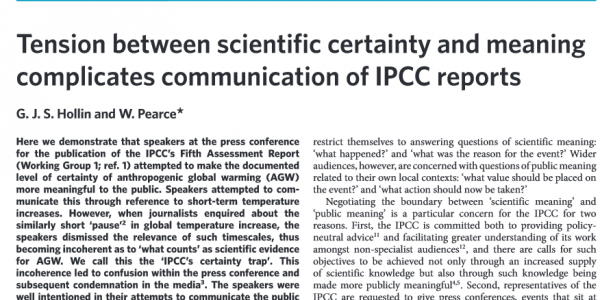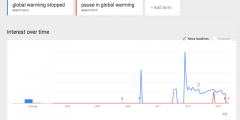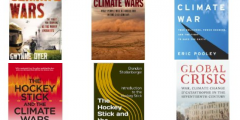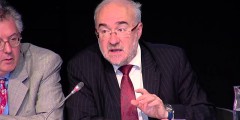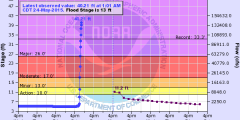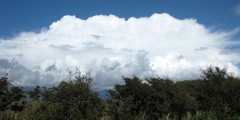Methodological clarity required when publishing social science in natural science journals
October 23, 2015
This is a joint post with Greg Hollin. The latest issue of Nature Climate Change features a Correspondence from Peter Jacobs and colleagues which concerns a recent Letter that appeared in the same journal; our Reply is also published. We do not wish to deny that there are real and significant differences between ourselves and …
Climate change and the tragedy of our shrinking horizons
October 8, 2015
A few days ago, on 29 September 2015, the Governor of the Bank of England, Mark Carney, used the phrase ‘tragedy of the horizon’ in a speech on “climate risks for the global economy and global financial stability with a focus on the insurance sector”. This got me thinking about the various times the concept …
The pause
September 28, 2015
About three years ago, in 2013, I became aware of discussions around the ‘pause’ (a period of relatively little change in globally averaged surface temperatures) and since then I have been observing goings-on around this new talking point in the climate change debate. I was a bit surprised by how much trouble a wiggle in …
The crucial role of culture in climate change
September 5, 2015
On Wednesday, I attended the US Ambassador’s ‘digital dialogue’ event on climate change at Winfield House, where policy wonks, journalists, NGO representatives and academics discussed their current hopes and frustrations. Beyond the usual grumbles about ‘bogus arguments’ against climate action, it was pleasing that some attendees outside of the social sciences chose to highlight the key role of cultural …
Climate wars
September 3, 2015
At the end of August Barry Woods asked on Twitter when the phrase ‘climate wars’ was first used and Warren Pearce ‘paged’ me. I was on holiday, so I didn’t have time to properly look into this. I still haven’t got a lot of time, but I have started to dig a bit. When you …
Improving climate change communications: moving beyond scientific certainty
June 8, 2015
This is a co-authored post with Gregory Hollin. It is based upon our new paper in Nature Climate Change, which is the first piece of original research from science and technology studies (STS) published in the journal. In the last 25 years scientists have become increasingly certain that humans are responsible for changes to the …
Extreme weather talk: The sequel
June 4, 2015
Two years ago I published a blog post on extreme weather. This showed that unlike media reporting on climate change, which has generally been going down since 2007 (with some variations and a bit of an upsurge now, see Max Boykoff’s graph at CSTPR), media reporting on ‘extreme weather’ seems to be going up more …
Climate linguistics
May 18, 2015
In a recent news article about the origins and spread of the concept ‘climate denial’, the E&E reporter Jean Chemnick refers to me as a specialist in ‘climate linguistics’. Somebody asked me on twitter whether this field existed and some people searched my academia profile to find out more. I myself also googled around a …
Lukewarmers
May 14, 2015
On 3 May (2015) Tamsin Edwards wrote an article for The Observer entitled “The lukewarmers don’t deny climate change. But they say the outlook’s fine” (see here for a discussion; I should point out that Tamsin didn’t choose the title for this article). This prompted Steven Mosher to write the following comment: “Lukewarmers have come …

